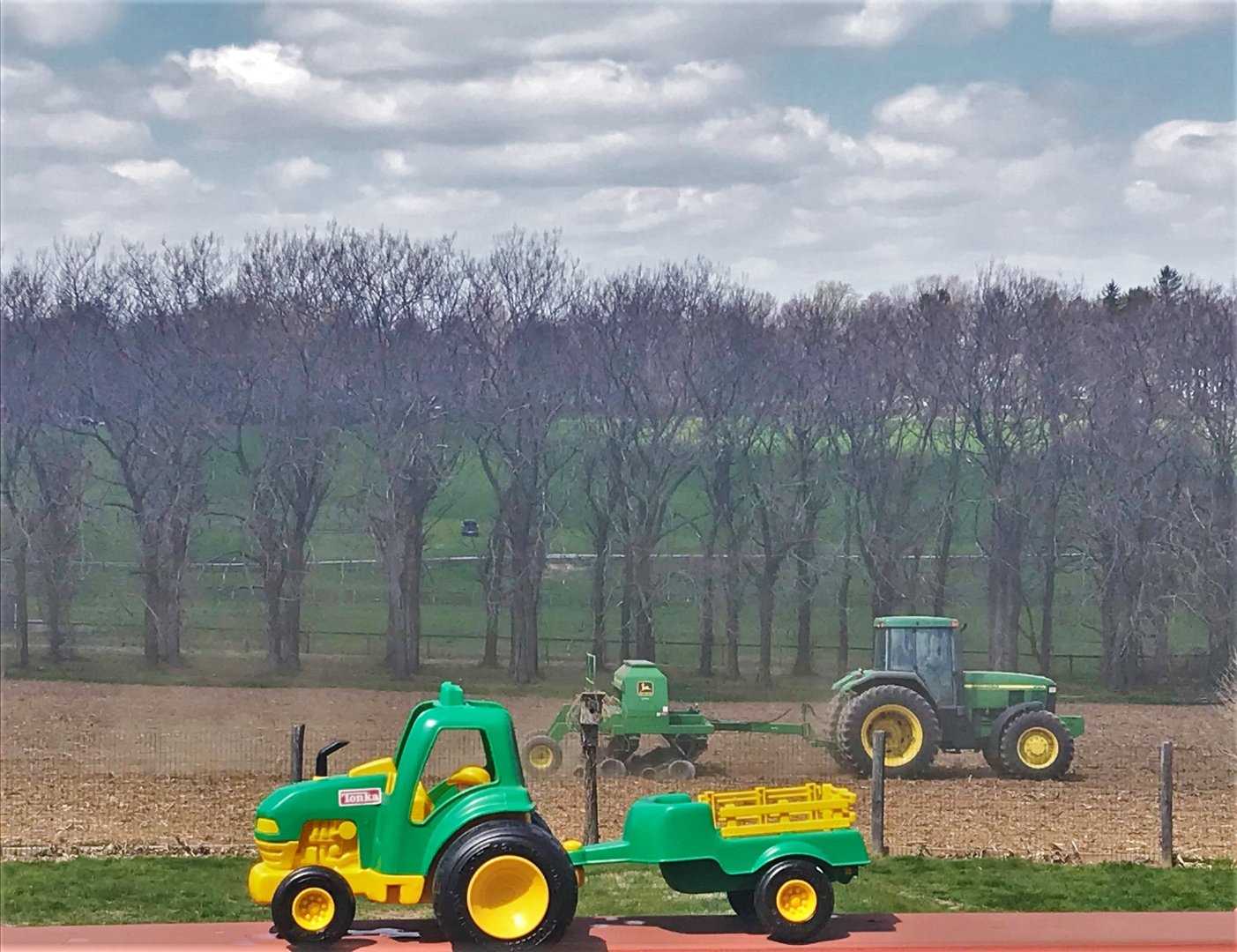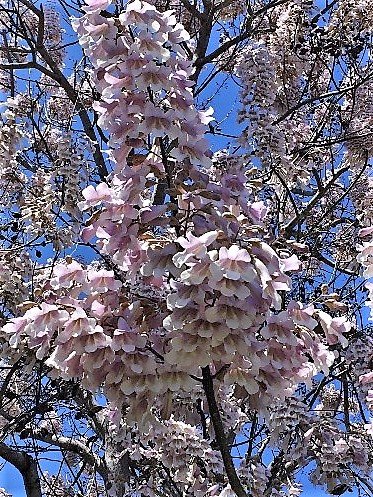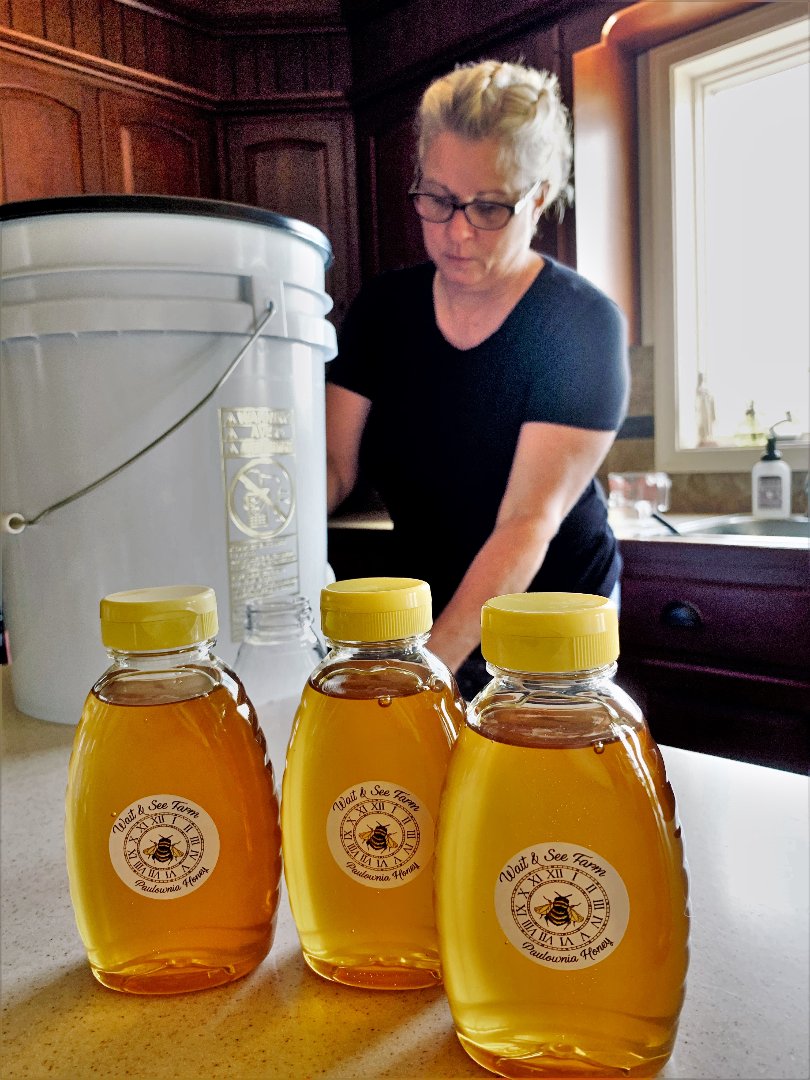A Parkesburg, Pennsylvania, resident is benefiting from the many uses of a fast-growing crop after searching online for guidance.
Patricia Doyle and her partner, John Kopacz, purchased a small farm in eastern Pennsylvania in 2019. Two acres of the land hold an orchard of approximately 140 large paulownia trees in the lower portion of the property, which the previous owner planted about 20 years ago.“They were badly overgrown with poison ivy,” Doyle said. “We hand trimmed them and cut back as many of the vines as we could. It was a lot of work, and we still have some work to do.”
With a lack of knowledge about paulownia trees, she was curious to know if there was still a market for paulownia wood, but she received conflicting answers. Native to China, paulownia is a multipurpose crop used for honey, timber, tea, lip balm, medicinal purposes and much more. It is easy to grow for reforestation and could help farmers establish sustainable income.
“Most of the people in my area had never heard of paulownia,” Doyle said. “Then, I found out about the study at Fort Valley State University.”
The Wait & See Farm owner searched online and discovered a story about two FVSU graduate students researching the versatility of this royal empress tree. She contacted one of the students who referred her to Dr. Nirmal Joshee, an FVSU professor of plant science.
“Dr. Joshee said the paulownia trees help a lot with greenhouse gases, are good for the environment and make good honey. So, we decided to keep them,” Doyle said. “When the trees blossom, they have these beautiful purple flowers.”
Joshee, who has more than 15 years of experience researching paulownia, said paulownia honey is a quality product. With 2,500 paulownia trees on FVSU’s campus, his team of researchers produced 420 pounds of honey several years ago.
“I suggested to her that she could easily produce it as an additional income. Paulownia honey is healthy and helpful for companion crops because of the bees,” he advised. “I sent her our research publications and recommended that she raise bee colonies.”
After a year, Doyle contacted Joshee to confirm that she took his advice and experimented with making paulownia honey. She purchased approximately 10,000 bees in the spring and harvested her first batch of honey (20 pounds) in June. “The honey was light in color and taste. Everyone I gave it to loved it,” she said.

With plans to expand their small operation, Doyle said her daughter works at a local fudge shop, where the owner is interested in selling her paulownia honey. “It has been received so well and we are really excited about it,” she beamed. “We have sold out our next harvest and have a waiting list.” The Pennsylvania farmer is grateful for Joshee’s guidance and expertise.

“I would have never known it if it were not for Dr. Joshee. It changed our whole way of how we view that grove of trees,” she said. “We were busy wondering how we could get rid of it. Now, it is the most significant part of our property, and we are working on giving our mature paulownia a healthy environment. I am so grateful for Dr. Joshee’s invaluable work.”
Doyle admitted that she always wanted to keep bees, but she did not know much about them. She said Joshee encouraged her to do it, and now it is an awesome hobby for her and her family.
“Look at the impact of our research,” Joshee said. “With 1 pound of honey, she could earn at least $30. Paulownia is a versatile crop and could be a good consolidated project for farmers. For 10 good weeks, farmers with 5 to 10 acres could easily make $5,000 to $10,000, and if they grow it organically, they could earn twice as much.”
For more information about paulownia trees or honey, contact Joshee at (478) 822-7039 or josheen@fvsu.edu.

